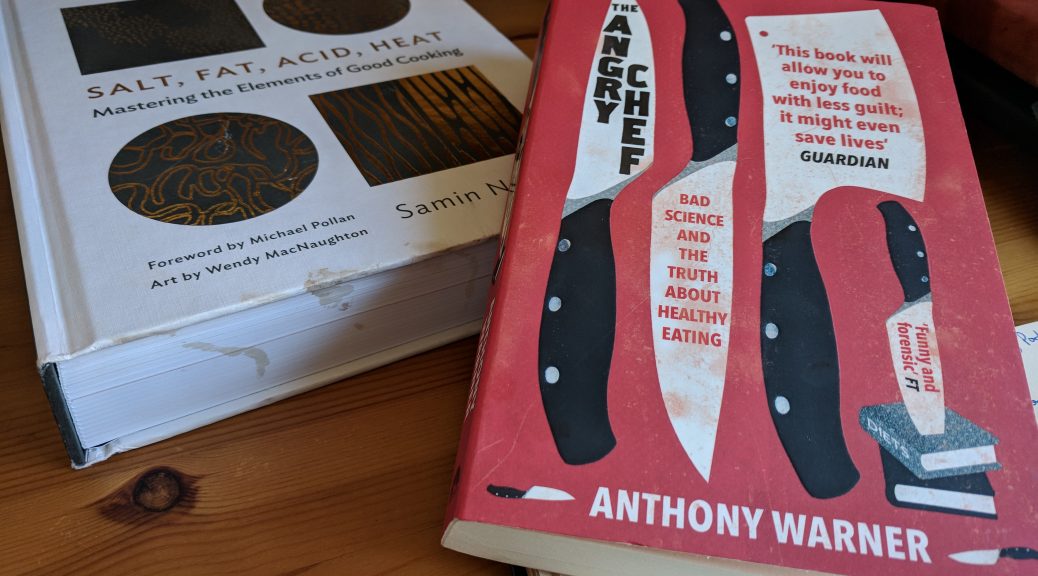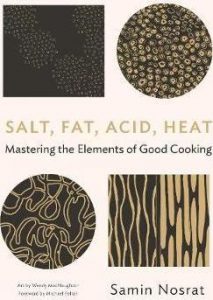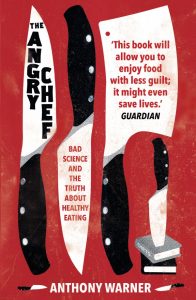
To salt or not to salt?
The Great Food and Drink Show
At the weekend I spent a few hours at The Great Food and Drink Show, held at Westpoint , Exeter. Usually when attending these kinds of events I drag my wife and son with me, meaning that keeping a two year old entertained becomes the priority, and meaning that actually sitting down to watch cooking demonstrations is something of a non-starter. Yesterday however, I struck out on my own so was free to soak everything up at my leisure.
Compared to some other food and drink shows, this was on a slightly smaller scale; however it was actually rather nice to be able to take everything in and not have to elbow my way through crowds to get to each of the exhibitors. It also meant that it only took me 15 minutes or so to shuffle round and see what took my fancy, before turning my attention to the demo stage.
Jean-Cristophe Novelli
Among the celebrity chefs booked for Sunday’s demos was Jean-Cristophe Novelli. I must confess I didn’t know a great deal about his career or cooking style though. I have seen him on TV at various times over the years but never paid close attention to his career. But Jean-Cristophe’s demo on cooking without salt, and using fat and sugar sparingly has really stuck with me.
I am always rather sceptical about fad diets which is why I enjoyed reading The Angry Chef so much. But what Novelli is suggesting is not a detox diet or fad. He is showing ways to cook that will help to keep salt, fat and sugar consumption down. He is simply trying to stick to levels that are generally agreed to be healthy.
Too much salt
Of particular concern to Jean-Cristophe is the quantity of salt we all consume. According to the NHS, the recommended daily intake of salt for an adult is 6g. That is approximately 1 teaspoon. I can confidently state that I regularly exceed that, and I’m sure I’m not alone. Estimates put the average daily consumption of salt in the UK somewhere between 8-12g.
During his demo he produced two dishes – ratatouille served with seafood and steak with mushroom and blue cheese sauce. At no point in the cooking of these dishes did he reach for the salt pot. The ratatouille had about half a dozen olives in it, while the blue cheese brought some saltiness to the mushroom sauce, but the fish and the meat were not seasoned at all. There was fat present in both dishes – oil was used to dress the fish, double cream used as a base for the mushroom sauce – but none was used to fry any ingredients. This all felt rather counter-intuitive and yet the food that was produced was divine. I was sure that the ratatouille would taste insipid without salt, but it was fresh and zingy with herbs and the sharp-sweet flavour of tomato. I was convinced that the steak – completely unseasoned – would be crying out for salt, but the quality of the beef and the addition of the earthy, tangy sauce made for a delicious plate of food.
Of course you may be thinking ‘Yeah, but would it have tasted better with salt added?’ and the answer is yes. Salt does what it does and would have probably turned the volume up on both these dishes. But these dishes demonstrated that it is perfectly possible to get exceptional flavour without adding excessive quantities of salt.
What now?
So am I about to flush the table salt down the loo in a scene reminiscent of Goodfellas? Do a terribly middle-class good deed and donate my smoked Maldon sea salt to charity? Force salt-piety on friends and family whenever I cook for them? No. But I will think a bit more carefully about where and when to use it. If I am throwing a dinner party – cooking for pleasure – then I will probably ignore a lot of this advice. When I am cooking for my family – for health, sustenance and nourishment – these ideas become a lot more valuable.
I spoke to Jean-Cristophe after the demo and he addressed the conflict between this style of cooking and the food that he has made his name with, going so far as to call himself a traitor. But he seems to genuinely believe in the message he is promoting. That belief extends to considering whether or not food cooked in this way could ever get Michelin’s attention. It is hard to see his ideas being adopted by the culinary establishment completely, but with the way we eat changing all the time, and talented, driven proponents like Novelli, perhaps healthy eating and fine dining won’t always be at odds.
Links
If you are tempted to see how a dish can taste without added salt, try making my ragù recipe by following the link below. I created this dish specifically for feeding a toddler, so deliberately avoided adding salt.
If you want to find out more about Jean-Cristhope Novelli’s ideas, he incorporates many of them into the courses at the Novelli Academy.


